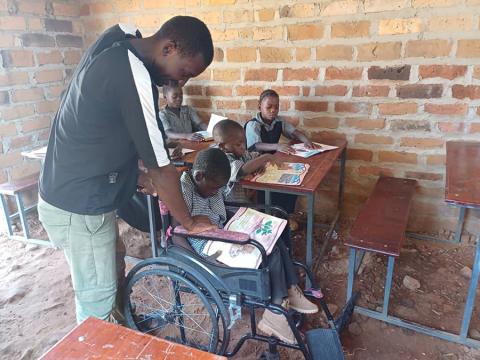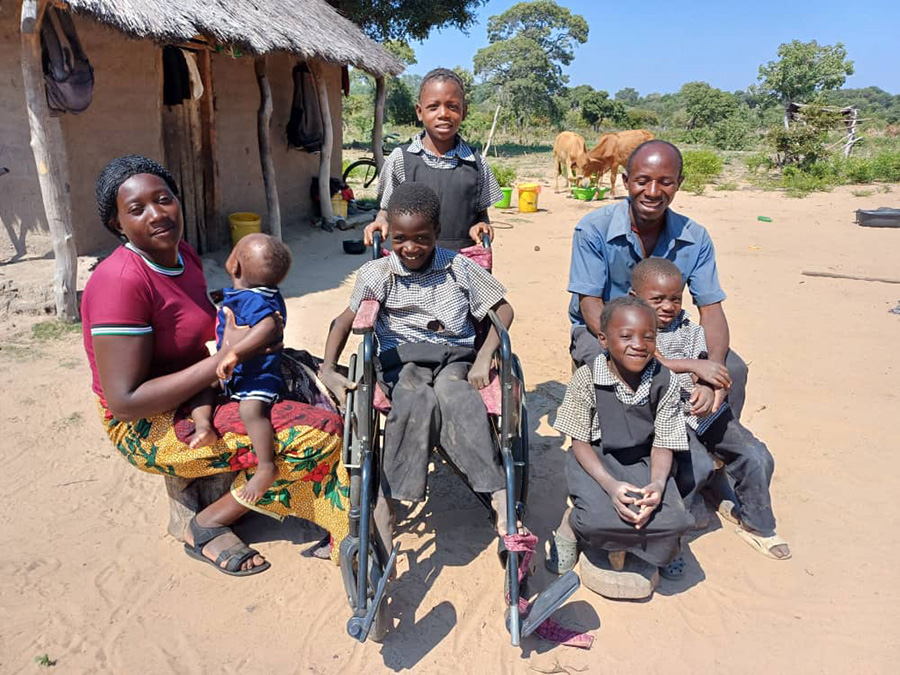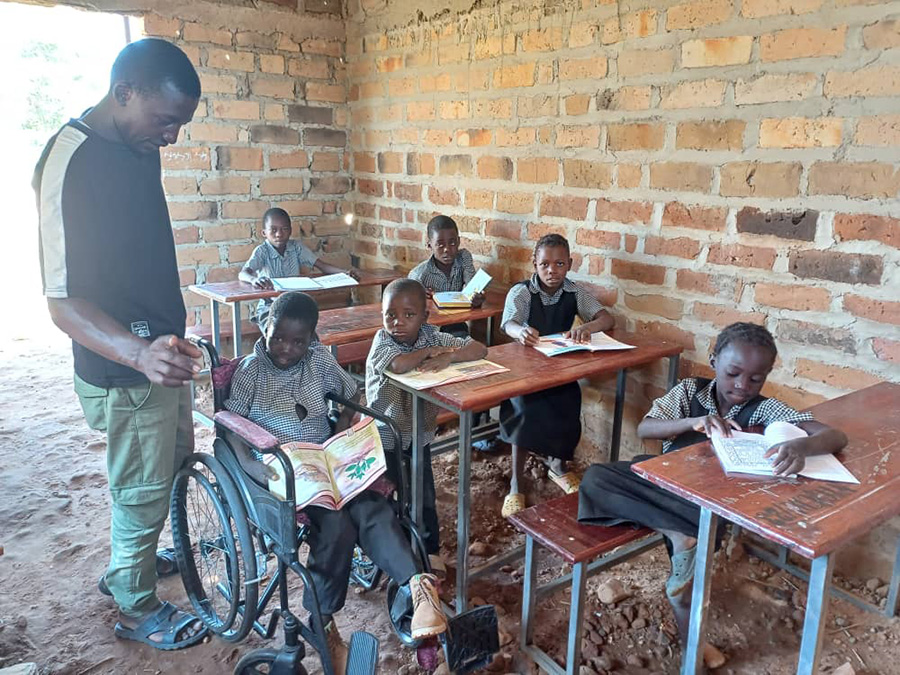Now He Is Able

“Children living with disabilities are marginalised in our society…. However, when presented with an opportunity and the provision of the right assistive devices, the children can acquire an education that can transform their lives,” asserts Sydney Simubwa, Project Manager, World Vision Zambia, as he considers the challenges children with special needs often encounter when it comes to education access.
The sentiment is particularly relevant for eight-year-old Morgan, a class 2 student going to school in Zambia’s Namwala District. The oldest of his parents three children, the young boy was born with a crippling, congenital condition that has rendered his speech difficult and walking impossible. His mother, Credential Changala, a subsistence farmer who managed to reach class 8, reveals that her son suffers from “a lack of strength” and that his condition requires physiotherapy. However, due to the family’s financial situation, that course of action was simply not an option. As it happens, in this part of the country where poverty and a lack of school infrastructure are steep barriers by themselves, it is fairly common for children with disabilities (CwDs) to miss out entirely on their right to education, because parents fear discrimination, stigma and even, in some cases, superstition. Unfortunately, in far too many instances, CwDs never obtain an opportunity for schooling and eventually are reduced to a life of begging as a final resort.

One may readily conceive what the future held for Morgan, the cheerful boy with an easy smile who enjoys Maths and loves to draw… Living approximately 1 kilometre from his school, Morgan’s only means of transportation, to and fro, was to be physically carried. The burden to help their son access an education was formidable, especially with the understanding that his parents are obliged to spend large amounts of time in the fields, tending to crops and producing milk for the market. But, his mother, Credential and stepfather, Lameck, were working hard to make the best out of a difficult situation. Still, the boy was in a precarious predicament. What would happen if something transpired that imperilled Credential or Lameck’s ability to carry him back and forth from school over the long term? Already, on days, when no one could take or pick him up, Morgan would just stay at home and play with his younger siblings or draw….
Yet, a solution was near at hand. Fortunately, through the “Empowering Vulnerable Children with Education (EVE)” initiative, a joint project between Education Above All’s Educate A Child programme and World Vision, some of Zambia’s most marginalised children, at high-risk of dropping out, are eligible to receive targeted support to help stay in school! For Morgan, this meant that he qualified for and was awarded a wheelchair to aid in that regard. This was a huge development in the family’s life and his journey through education.
Each child has a right to education…

“The wheelchair has created time for me to do other things, because now, Morgan is easily pushed to school and back home by his siblings and friends. I don’t have to carry him on my back to school and back every day as it was in the past” his mother beams. As a result of the new wheelchair, Credential now has time freed up in her day, to lend a hand to her husband in the field, which was not previously possible.
The Head Teacher at Morgan’s school, Rachael Namatemba, takes note of the difference now too, saying, “[his] absenteeism rate has reduced from missing school one to two times every week before, to only twice in three months after receiving the wheelchair. He has made more friends at school than before because now he is able to manoeuvre around the school area freely...”
When asked about the value of quality education for at-risk children like Morgan, the Head Teacher rejoins plainly, “Each child has a right to education…”